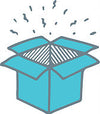We’ve all heard the announcement repeated on airplanes, “In the event of an emergency, please put on your oxygen mask before assisting others”. Everyone around you is probably telling you, the caregiver, that you need to take care of yourself. However you likely feel like that isn’t your first priority. But, the hard truth is: if you run out of oxygen, you can’t take care of anyone else.
Put on your oxygen mask first!
WHY IS SELF CARE SO IMPORTANT?
WHY IS SELF CARE SO IMPORTANT?
“Putting your mask on first” means different things to different caregivers. We feel responsible to make sure that everyone is ok and thinking about ourselves feels almost selfish. Humans have an extraordinary ability to care for those they love, at any cost. We are hardwired as a species to care for our young- and I believe this response of ours has essentially ensured the evolution of our species.
However, in order to take care of everyone else, you have to take care of yourself first. So what does “taking care of yourself” even mean?
Food
Take a Break
Water
Talk to Someone
Rest
Ask for Support
The Basics: Food, Water & Rest
The first three items on the list above are pretty intuitive. However, you may be tempted to skip meals, forget to drink enough water and even lose several nights of rest. Try your best to eat so that you have energy to take care of yourself and your child. Always try to keep a water bottle beside you to remind you to stay hydrated. You should aim to fill it up at least twice a day. As for sleeping, try to rest when your child is asleep - if you cannot sleep at the hospital, ask a family member or friend to stay with your child while you go home and rest.
Take a Break
A few minutes away from your child, and the hospital atmosphere if applicable, helps renew your energy and calm you down. While your child is getting a treatment or sleeping, try taking a walk, getting some coffee, or just sitting in the lobby for a little bit.
Ask for Support
Sometimes it is just so difficult to ask for support. You are not alone. Just as the medical team surrounds your child with care, there are people surrounding you — family, friends, and professionals (even at the hospital). Don’t be afraid to ask others for help - quite frankly, people are eager to assist but just don’t know how. By you reaching out to them with specific requests, not only are you going to get the support you need—but you’re also making others feel useful.
In terms of the hospital setting, having a family member or friend with you at the hospital early on is very helpful. Like your child, you too need help adjusting to this new environment. Try to create a routine with others surrounding practical consideration at the hospital (i.e., getting food, validating parking, etc.) to make everyday tasks more manageable.
Talk to Someone
People are built differently and react differently to traumatic events. Some people have the ability to “cry it out” - for certain people, if feels natural to unload their feelings. By contrast, many people have the tendency to bottle up their emotions and are incapable of talking to anyone about the thoughts in their hearts and minds.
However, keep in mind that your child can tell when you are worried or upset. Sharing your worries with another adult like a family member, friend, clergyman, or counselor can definitely help lift the load off of children’s and adults’ shoulders alike. Putting into words what you‘re feeling is a very effective way to start releasing some of your pain. The truth is that by letting your emotions and even tears flow, you are letting out what hurts while making more room in your heart for positive thoughts and feelings.




